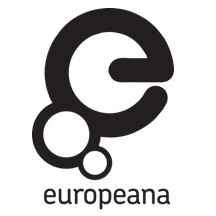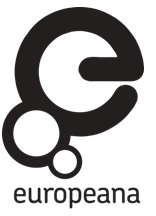
 |
We interviewed Nuno Freire who is part of the EUDAT-Europeana Data Pilot, to learn more on how EUDAT makes huge datasets promptly available to researchers. |
How would you describe Europeana to someone who doesn't know it and who is not even very familiar with data & interoperability challenges?
Europeana (www.europeana.eu) is Europe’s digital platform for cultural heritage, collecting and providing online access to over 54 million of digitised items from over 3700 cultural heritage institutions, ranging from books, photos and paintings to television broadcasts and 3D objects.
One of the main challenges for Europeana is to provide access to collections that are vastly heterogeneous and coming from different countries.
The institutions (libraries, archives, museums, audiovisual collections across Europe) that contribute metadata to Europeana, use many different standards and practices and their data comes in dozens of different languages. This makes the provision of a unified access layer on top of it a difficult endeavour, which necessitates a great deal of community effort and standardization, as well as metadata harmonization and enrichment.
How and why did Europeana start? Who is behind Europeana?
Europeana has been promoting the richness and diversity of our shared European cultural heritage through digital technology since 2008.
The catalyst for Europeana was a letter sent by Jacques Chirac, President of France, together with the premiers of Germany, Spain, Italy, Poland and Hungary to the President of the European Commission, Jose Manuel Durao Barroso, in April 2005. The letter recommended the creation of a virtual European library, to make Europe’s cultural heritage accessible for all. Europeana DSI is co-financed by the European Union’s Connecting Europe Facility.
The Europeana Foundation is a team of around 60 people, based mostly in the Hague (the National Library of The Netherlands) but also in London (the British Library) and Paris (the Bibliothèque nationale de France). Our Network Association of over 1,500 cultural heritage professionals, researchers, creatives, educators and policymakers, together with its elected Members Council, help to shape Europeana's strategic direction, improve data quality and make it more open.
|
How is Europeana going to make a difference? Who will benefit and is Europeana going to continue in the future?
Europeana can make a difference in mobilizing the cultural community across Europe, reaching new audiences, inspiring new creativity, and increasing greater understanding of our shared European history with cultural heritage content. It will benefit education and research professionals, creative industries, Cultural Heritage Institutions, and end-users. Regarding how it will continue in the future, imagine clearly labelled material, new distribution partnerships and cool and effective ways of engaging people. That is what is needed in today’s landscape where content follows the user.
|
|
How are EUDAT services contributing to its outcome? What would you have done if EUDAT services weren't available?
EUDAT services are making the cultural heritage datasets promptly available in the workplaces of researchers, by supporting their discovery, access, citability and re-use. In future work, we see also the use of EUDAT services to facilitate the computational processing of the cultural heritage resources. Without a generic and cross discipline data infrastructure, such as EUDAT, Europeana would have to work with several other infrastructures to reach all potentially interested researchers.
Could interested people take part in your initiative or support it? If so, how?
Yes! We would love to hear from you! Recognising that undertaking research on the digitised content of Europe’s libraries, museums and archives has huge potential for the digital humanities and social sciences we initiated Europeana Research. The involvement of individual researchers, as well as other e-infrastructures, with the cultural heritage resources at EUDAT, truly supports our mission to promote research usage of cultural heritage datasets for research. All feedback from your experience is very welcome and researchers are invited to join the Europeana Network and to follow Europeana Research on twitter to stay informed about our activities.
About the Europeana Team:Nienke van Schaverbeke is heading up Europeana’s Collections team and working on Europeana Research. Coming from a background in academic publishing (Cambridge University Press, Brill Academic Publishers) she places the interest of the researcher at heart.Nuno Freire holds a PhD in Informatics and Computer Engineering from the Instituto Superior Técnico, University of Lisbon. He conducts his research at INESC-ID, and his areas of interest include information systems, data integration, information extraction, data quality, knowledge representation, and information retrieval, particularly in their application to digital libraries. He has been also a member of the Program Committees of major international conferences in the area: JCDL (Joint Conference on Digital Libraries) and TPDL (Theory and Practice in Digital Libraries) and reviewer for the International Journal on Digital Libraries.
Learn more about the EUDAT-Europeana data pilot here.
